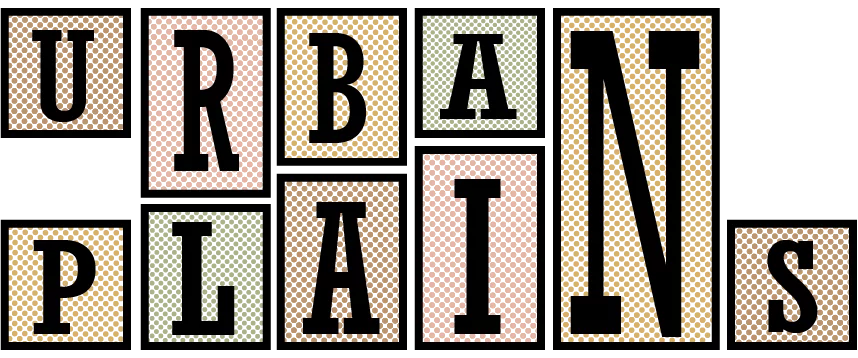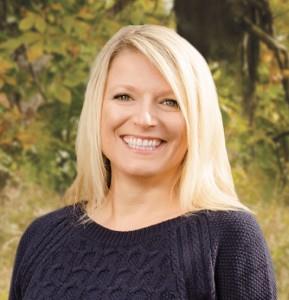Inside Hannah Inman’s plan to use “radical collaboration” to revitalize Iowa’s waterways
“I think it’s up to us as our generation to say, we want to be one Iowa, we all share the same water, and we have the same goals. We need to work together and get there.”
For many Midwesterners, access to lakes and rivers is taken for granted. Getting out on the water is a staple of summer activities, providing a great opportunity to spend a day outdoors with friends and family.
But for many Iowans, this activity can be severely limited through a lack of water access points. Enter the Central Iowa Water Trails Project, a collection of Iowa business leaders and government officials dedicated to addressing this issue. But their work doesn’t stop there; if all goes well, the project aims to fundamentally improve water quality throughout the state.
Hannah Inman is the CEO of the Great Outdoors Foundation, and she’s a member of the project’s board of directors. A proud self-proclaimed “tree hugger,” Inman’s long been passionate about the outdoors and the environment.
“My life is outdoors and outdoor recreation and conservation is part of who I am and my DNA,” Inman says. “And I just feel that the world is better when we’re outside. I feel that there’s something spiritual that happens when you reconnect, and you recenter yourself when you spend some time outside.”
Her interest in nonprofit work also started young, as she had opportunities to work alongside her parents on service projects in her local community.
“I grew up doing a lot of nonprofit work, my parents were really involved within the community,” she says. “That was just a part of who we were, whether it was our local theater or the schools; my parents worked with others to fund a new church. So I always sort of gravitated towards that type of work, because I thought it was really interesting – how you can make such a big impact through that work.”
Inman ended up at the University of Iowa for college, and after graduation spent time working in Austin, Texas, and Washington, DC. She worked in nonprofit fundraising in both cities, and continued on that career path when she moved to Des Moines with her husband, which led to her current position.
In 2019, Great Outdoors Foundation formed an LLC to begin forming the goals of the Water Trails Project. It included five Iowan businesses, such as Capital Crossroads, Catch Des Moines, and the Greater Des Moines Partnership. The LLC was formed in response to the findings of an engineering study that revealed the extent to which Iowa’s waterways were still untapped opportunities. With over 150 miles of water, there was potential for 86 new access points. But this carried a daunting price tag: $117.5 million. There also wasn’t anyone to spearhead the fundraising efforts, which encouraged Inman to throw her support behind the project.
It takes radical collaboration. And sometimes it’s not linear and sometimes you have to back up to make sure you make the right decision, but it gets us to a better product in the end
Hannah Inman
“I wanted to make sure that whatever project, if we’re raising that much money for it, […] that money would be invested wisely and in a good way to produce a great end product,” she says.
Raising so much money was no easy task. Inman’s prior experience suggested that a third of the needed funds would come from federal sources, another third from state and local agencies, and the remaining third from private sources. To inspire private donations, she had to be able to demonstrate the necessity of the issue to potential supporters.
“It felt like one of those areas where if we can get people on the water, and in the water, they’re going to care about the water.”
To this end, Inman estimates that she met with about 250 people, either individually or in small group settings, making the case for the project. And as individual donations started to come in, she was able to leverage the support towards fundraising from the public sector, recently securing a $25 million federal grant.
With the current portion of funding secured, the Central Iowa Water Trails Project has started working on waterways across the state, such as Beaver Creek. The Des Moines River, which is the single longest waterway among all the different projects being worked on, has received some special attention before the Army Corps of Engineers breaks ground on the project, with work predicted to start in September 2021. This particular project was of specific importance because the area lacked access points for people to exit from after entering the river upstream.
“We needed to really work on Scott Avenue first because once you get someone in the water, you need to be able to get them out safely,” Inman says.
However, as progress has been made on these projects, engaging with community partners has revealed other underlying issues that need to be addressed. For example, meetings with the Refugee Alliance of Central Iowa revealed that many refugee families wouldn’t be able to use increased waterway access for one simple reason; they never learned to swim.
“One of the biggest issues that are affecting some of our refugee groups in Des Moines is that they don’t necessarily have a traditional swimming culture,” Inman says. “They don’t send kids to American style swimming lessons, or those swimming lessons are really hard to get to. And so the Refugee Alliance wanted us to work on providing additional swimming lessons. And so that’s something that we’ve been working through – to provide additional swimming lessons, either through the city of Des Moines or other partners – to make sure that we can help.”
Similarly, meetings with farmers around the state helped to ease fears that the project would hurt their livelihoods at a time when tariffs and climate prices had already made the occupation more difficult in recent years. There were concerns that conservation practices would be too expensive in up-front costs for them to be effectively implemented. Inman and other members of the project have met with the Corn Growers Association, as well as pork and soybean producers, in pursuit of the best strategy for all Iowans.
“We’re trying to work together on implementation on some of those things. But it’s not us dictating to them, it’s us listening, and then investing in their expertise and their knowledge to help remove barriers [so they can] have more water quality.”
This philosophy of engaging community members by addressing their needs has become central to Inman’s strategy.
“I say this a lot. It takes radical collaboration,” she says. “And sometimes it’s not linear and sometimes you have to back up to make sure you make the right decision, but it gets us to a better product in the end.”

